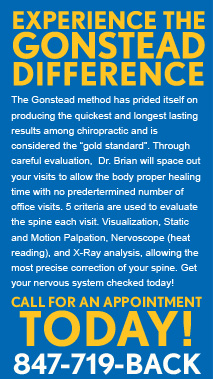Sweet Talk: Decoding Artificial Sweetners
Replacing sugar with artificial sweeteners may be doing our bodies more harm than good. Recent studies show that these chemically modified sweeteners can damage the way our bodies naturally process sugar, making us much more susceptible to overeating. Because of the increasing public health warnings, food companies are now using obscure names to hide these artificial sweeteners in their products. Too much sugar is not good for us, but hidden artificial sweeteners are definitely bad for us.
Products are not being labeled to tell us there is artificial sweeteners in them. Case in point there are several popular instant hot cocoa mixes that have sucralose in them. No where on the packaging except for the very long ingredient list do you find sucralose listed. Only the most observant consumer would notice this since sugar is the first ingredient. The reason they add sucralose is because it is 600 times sweeter than sugar. This allows them to make a less bulky product and which saves the manufacturers money while selling us chemicals that could have damaging side effects.
For the past few decades, the safety of artificial sweeteners has been hotly debated. Being able to eat and drink without worrying about the calories or the cavities was advertised as a great thing. But what else happens when we consume artificial sweeteners? To find out, let’s take a look at aspartame, saccharin, and sucralose, three of the major artificial sweeteners.
Aspartame is branded as Nutra-sweet and Equal and an ingredient in most diet pops, gum, candy, and some condiments totaling over 9,000 products found in the grocery store. Aspartame is by far the most dangerous of all artificial sweeteners as it breaks down into methanol (wood alcohol), formic acid, and formaldehyde. It is a known excitotoxin (Excitotoxins are a class of chemicals (usually amino acids) that overstimulate neuron receptors. Neuron receptors allow brain cells to communicate with each other, but when they’re exposed to excitotoxins, they fire impulses at such a rapid rate that they become exhausted.causing neuron and brain cell death.) Aspartame carries carcinogenic properties linked to an increase in brain and liver tumors which were known at the time of FDA approval. The use of aspartame is linked to headaches/migraines, dizziness, nausea, weight gain, muscle spasms, depression, fatigue, insomnia, heart palpitations, vision and hearing problems, anxiety attacks, vertigo, memory loss and joint pain, Emotional Disorders, Multiple Sclerosis, Lupus, Chronic Fatigue Syndrome, Brain Tumors, Brain Cancer, Diabetes, Parkinson’s Disease, Alzheimer’s Disease, Epilepsy, Birth Defects and Mental Retardation. Aspartame remains the number one complained about product to the FDA.
Saccharin also known as Sweet N Low has been around for more than 100 years. Studies indicate that saccharin causes cancer in the urinary bladder, lungs, ovaries, uterus, and other organs in animals and also increases the potency of other cancer-causing chemicals.
Sucralose, branded as Splenda advertises it tastes like sugar because it’s made from sugar. However the chemical composition more closely resembles Chlorine pesticides such as DDT than sugar or sucrose. These chemicals have been known to accumulate over decades causing severe toxicity. Research has shown the following side effects from sucralose: chest pains, irritability, confusion, fatigue, shrunken thymus gland (up to 40%), enlarged liver and kidneys, rreduced growth rate, decreased red blood cell count, enlargement of pelvis, miscarriage, decreased fetal body weights, changes in mood and diarrhea.
The bottom line is that there are no safe artificial sweeteners. While we should all limit the amount of sugar in our diets to a minimum, you can’t do so by replacing it with artificial chemicals without consequences. One safe no calorie alternative to sugar is stevia. This is a natural sweetener derived from the leaves of the stevia plant that is then dried and available at most grocery and vitamin stores in the dietary supplement area, not the sweetener aisle. If you must choose between artificial sweeteners and sugar, choose sugar. Sugar only contains 15 calories per teaspoon or 4 calories per gram. Most products stating diet or sugar free contain artificial sweeteners and are best left on the grocery store shelf. A wise consumer will have to do some label reading to ensure they are getting a product absent of harmful chemicals.
